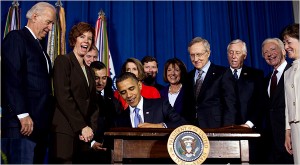from CNN: Opinion article by LZ Granderson
Grand Rapids, Michigan — A couple of years ago, while interviewing members of the Los Angeles Lakers, I had the pleasure of looking like an idiot on camera.
I was asking four of the team’s youngest players about what it’s like to be rich and famous in L.A., and who was their Hollywood crush. After some joking and bantering between the players, Ronny Turiaf, who now plays for the Knicks, turned the tables and asked me aboutmy Hollywood crush.
I hesitated — not because I wasn’t sure of the answer but because I wasn’t sure he wanted to hear it. But the more I awkwardly tried to deflect the question, the more persistent Turiaf became. Eventually, I felt as if I had no choice but to answer, and so with the ESPN cameras fixated on my slightly perspiring face, I blurted out the one name I always give when someone asks me that question — Hugh Jackman.
Funny, I’ve been openly gay for nearly 15 years and still every other day I find myself coming out of the closet; the byproduct of a society groomed to believe it’s impolite to ask and too personal to tell.
For much of the 1980s and into the 90s, it was hard to hear the word “gay” and not think about AIDS, in large part because those two words were so regularly linked in the media. For a lot of people that remains true, even though the disease has long been proven not to discriminate.
Today, after hearing the phrase “don’t ask, don’t tell” for nearly two decades on TV, and reading it in newspapers and online, the word gay has been couched as an “over-share” and asking is an “invasion of privacy.”
Yes, the repealed law was targeted at men and women in the military, but its inherent admonishment to “assume everyone here is straight and don’t say otherwise” seeped its way into the public’s consciousness. “Gay” went from being associated with a disease to a word you shouldn’t say.
Hearing the phrase “don’t ask, don’t tell” over and over subliminally encouraged secrecy. Even though we’ve grown accustomed to seeing gay characters on TV, many of us still tend to whisper when talking about gay people in real life. Why?
Because we’re all supposed to be straight and if you’re not, you’re not supposed to volunteer the information. If asked, you’re not supposed to tell. “It’s private,” we say, which is really just a euphemism for “I’m scared.”
But straight people “ask” and “tell” all of the time without thinking about it — through wedding announcements, or flower deliveries on Valentine’s Day. At the office, when a woman talks about visiting her boyfriend’s family for Christmas, who accuses her of ramming her private life down someone’s throat? But if the same conversation happens and “he” becomes “she,” all of a sudden she is metaphorically riding a motorcycle in between cubicles, braless, with an 8-foot rainbow flapping behind her.
It’s a double standard that’s only going to go away when we stop assuming and start asking and telling. But by asking and telling, I don’t mean “Are you gay?” followed by “Yes, I am,” like defendants on trial, but rather by answering harmless questions without the need to switch pronouns.
By asking and telling, I don’t mean speaking in a hushed, cloak-and-dagger fashion as if we’re sharing a juicy piece of gossip, but in the same monotone drone we use when talking about having bologna for lunch again.
President Obama can sign a bill into law. The judicial system can enforce it. But only everyday people can breathe life into the greater, cultural and personal significance behind the “don’t ask, don’t tell” repeal. And that is, we don’t have to hide.
By inquiring about my celebrity crush, Turiaf wasn’t invading my privacy and me telling him the truth wasn’t a TMI moment. We were just having a conversation.
Now, whenever I look back at that footage, I can tell from his and the other players’ faces that Wolverine wasn’t exactly the answer they were expecting to hear. But I can also tell from my face that I wasn’t expecting what the athletes did after that — nothing.
Not a slur, barely a pause and no one walked out.
We just moved on to the next name on people’s list, which was Beyonce, and then on to another topic.
To this day, those two minutes remain one of my most embarrassing times on camera. Not because I had to tell complete strangers I was gay, but because I assumed they would have a problem with it once I did. I respected them as athletes, but didn’t give them much credit as people. My distrust, my assumptions about them were caught on tape for the world to see.
I guess after so many years of a wintry reception it was hard for me to leave my coat behind, even in sunny L.A.
I’m sure there are many other GLBT people and allies who feel they can’t leave their coats behind. But the truth is “don’t ask, don’t tell” will soon be officially dead … and with that comes the thaw.
The opinions in this commentary are solely those of LZ Granderson.
The original article can be found here: http://www.cnn.com/2010/OPINION/12/22/granderson.dadt.gays/index.html

 WASHINGTON — The military’s longstanding ban on service by gays and lesbians came to a historic and symbolic end on Wednesday, as
WASHINGTON — The military’s longstanding ban on service by gays and lesbians came to a historic and symbolic end on Wednesday, as